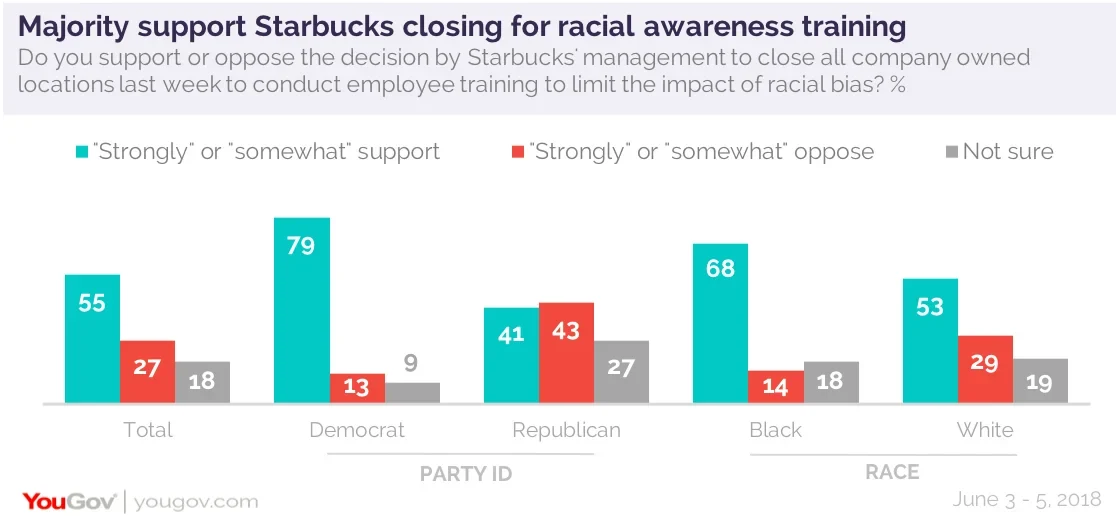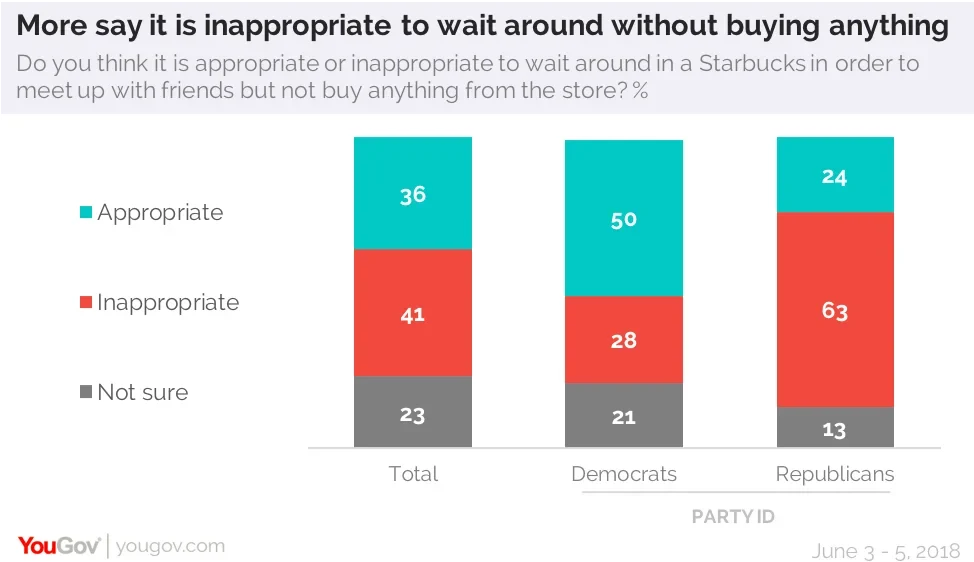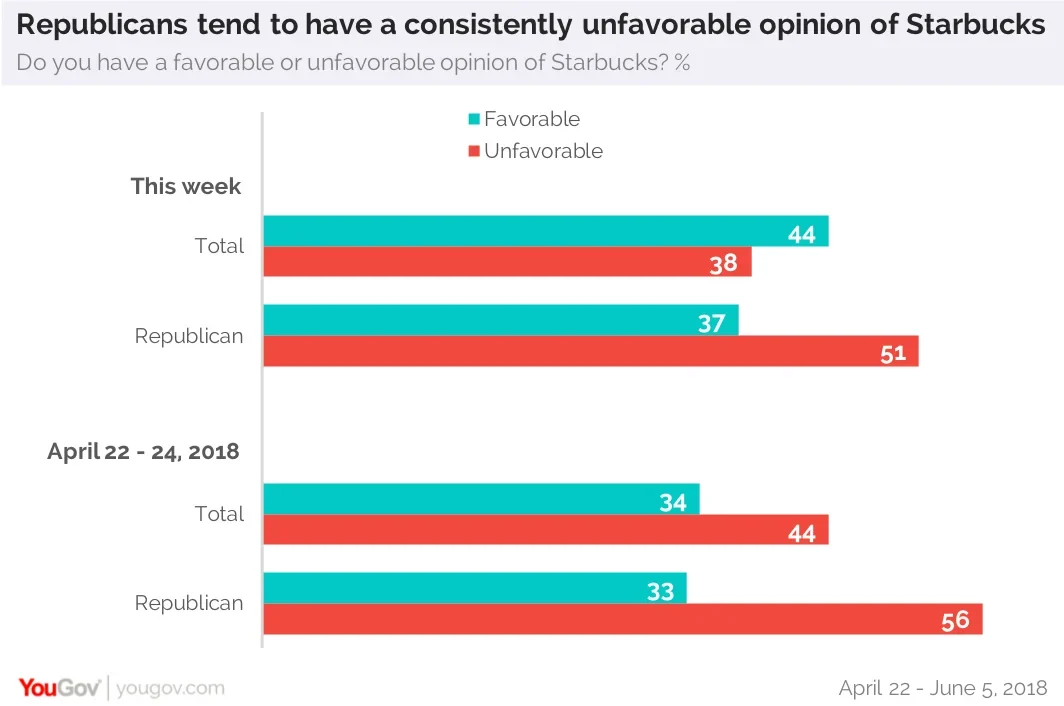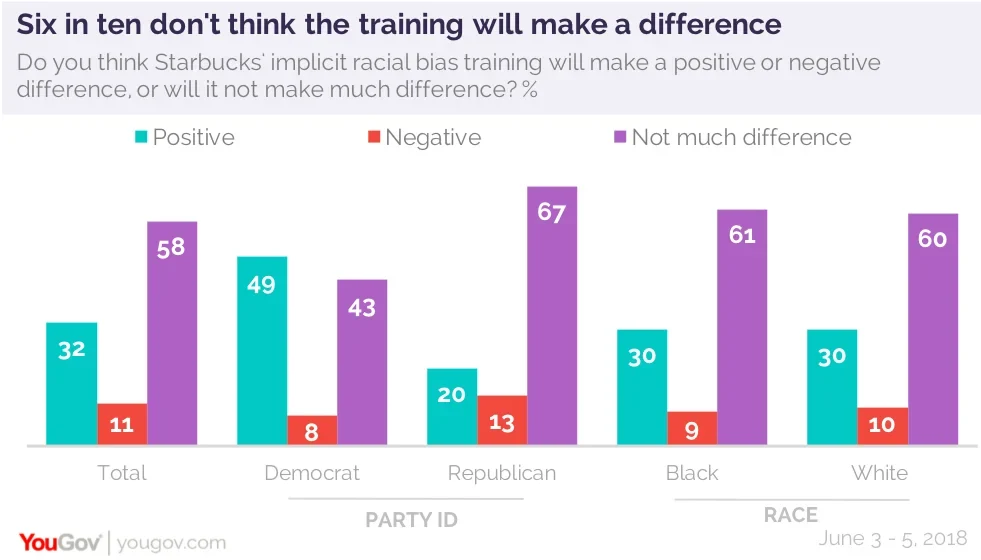Most Americans support Starbucks’ decision to close stores for implicit racial bias training
One half-day of sensitivity training to try to limit the impact of implicit racial bias at Starbucks is probably not going to have much effect, according to Americans in the latest Economist/YouGov Poll. Nonetheless, the public thinks that it was a good idea for Starbucks to hold that training in the wake of the arrest of two black men in the Philadelphia Starbucks who attempted to use the location’s restrooms without making a purchase.
By two to one, Americans support Starbucks closing company-wide for the half-day session in response to the arrests. African-Americans are especially supportive. A majority of whites agree. Republicans are evenly divided on this action.

There is also significant support for Starbucks’ decision to allow future non-customers to use the restrooms. 60% approve, 24% do not. Republicans are more closely divided: 50% approve, 40% do not.
The Republican response to the Starbucks actions may be more than just a response to the specific incidents, although Republicans are particularly sensitive to the two men’s behavior. Two-thirds of Republicans say the men’s behavior (waiting without buying anything) was inappropriate, much higher than the percentage overall who think this.

But Republicans also just don’t like Starbucks. There have been several criticisms and anti-Starbucks campaigns in the last few years, including in response to Starbucks saying it would hire refugees, dislike of the company’s Christmas cups, and claims that the company is anti-military and won’t serve Trump supporters. Republican (and conservative) overall opinion of the company is far different from that of the overall public, which shifted somewhat in a positive direction this week from a more negative view immediately after the April incident. A majority of Republicans were unfavorable then, and they are unfavorable now.

Most Americans doubt there will be much long-term impact of the training sessions, although Democrats are somewhat a more hopeful. Like the rest of the public, six in ten African-Americans don’t think the training will have much impact either way.









